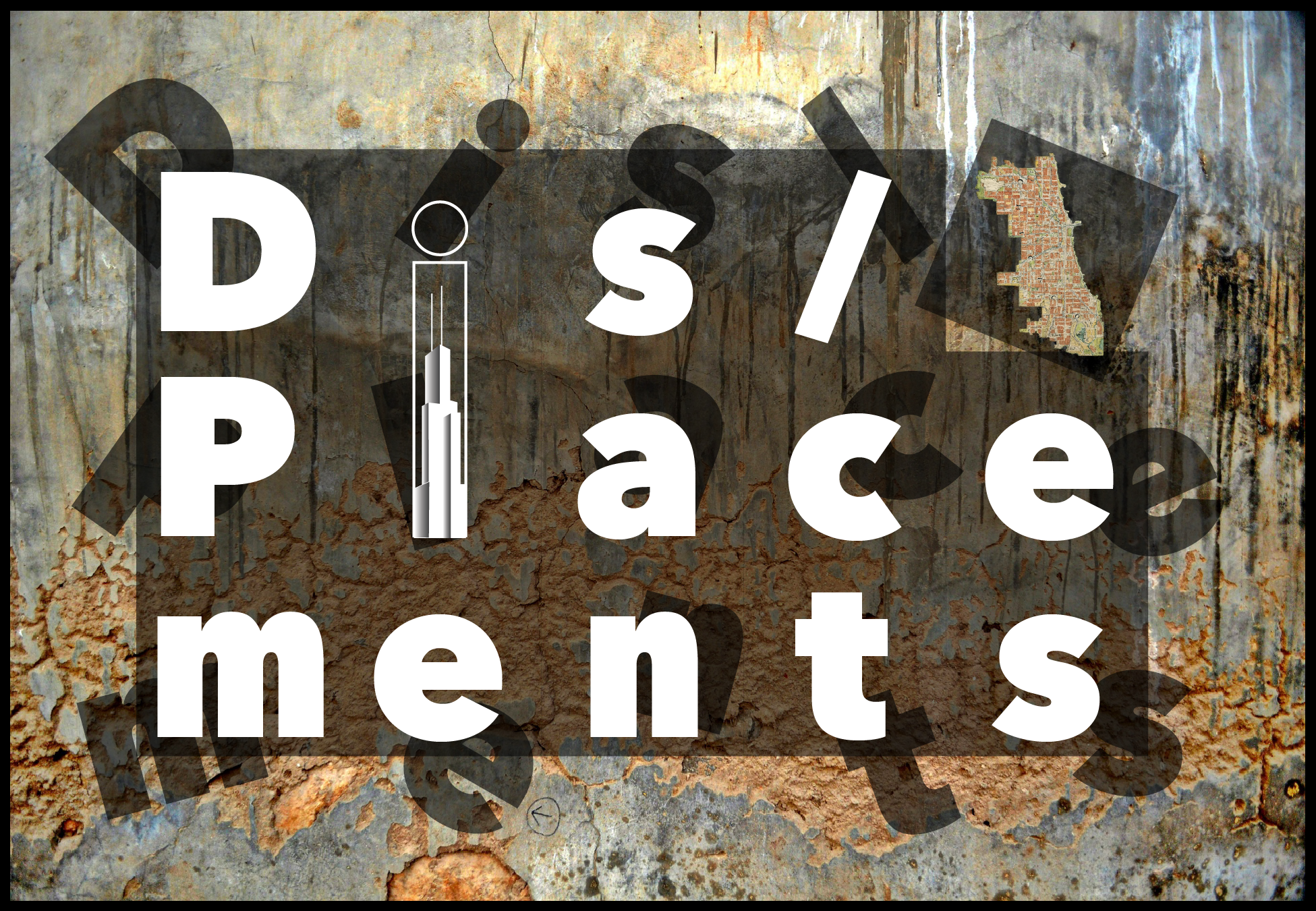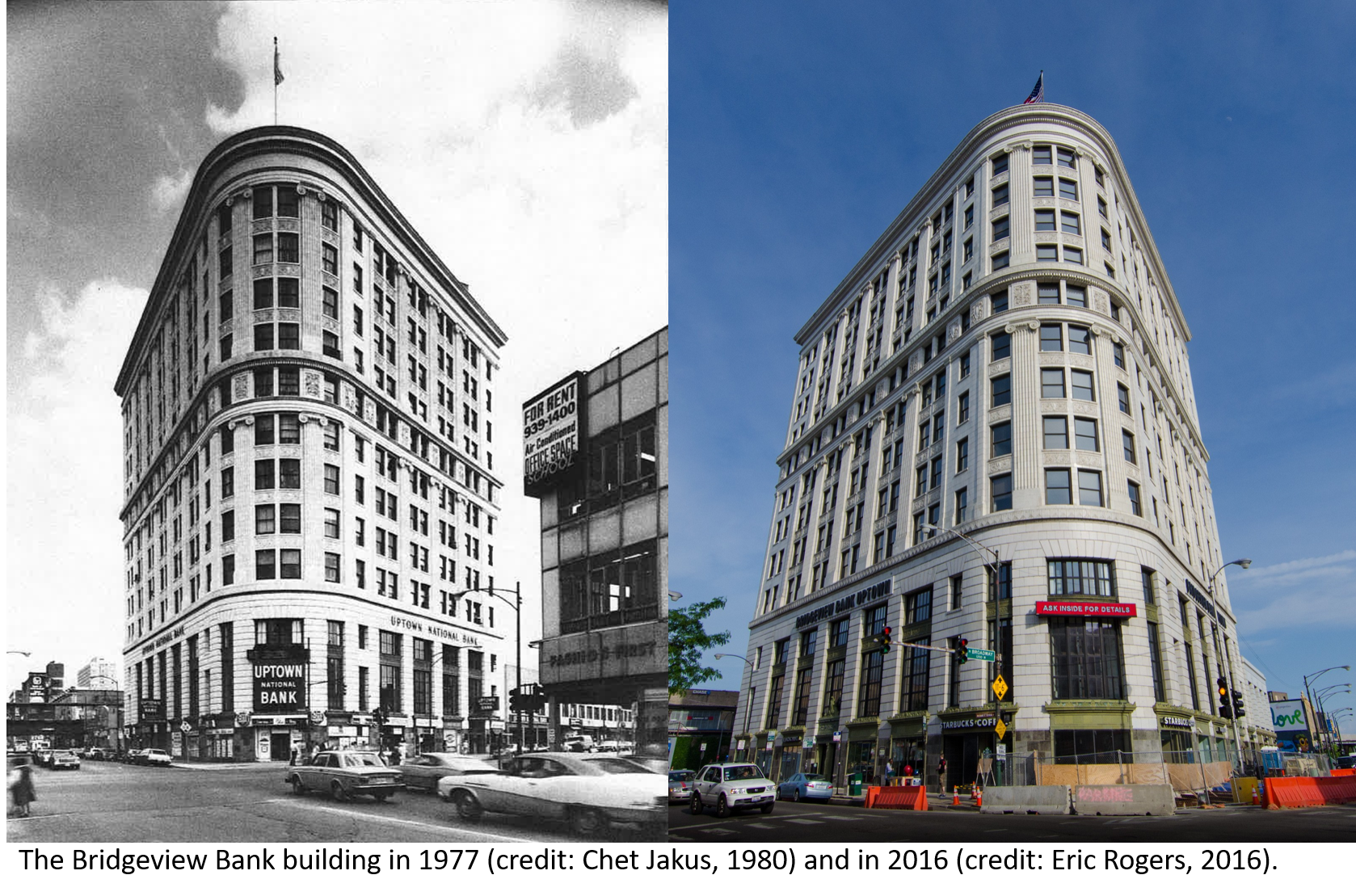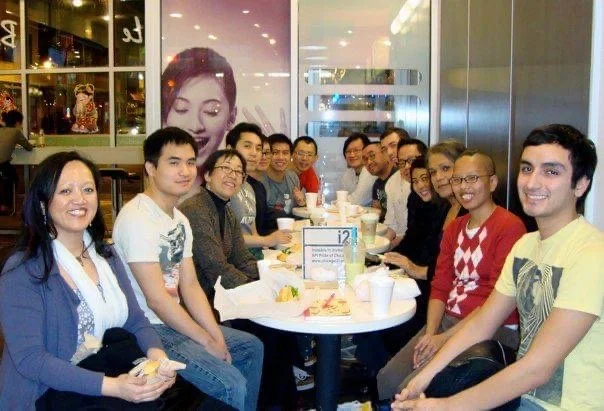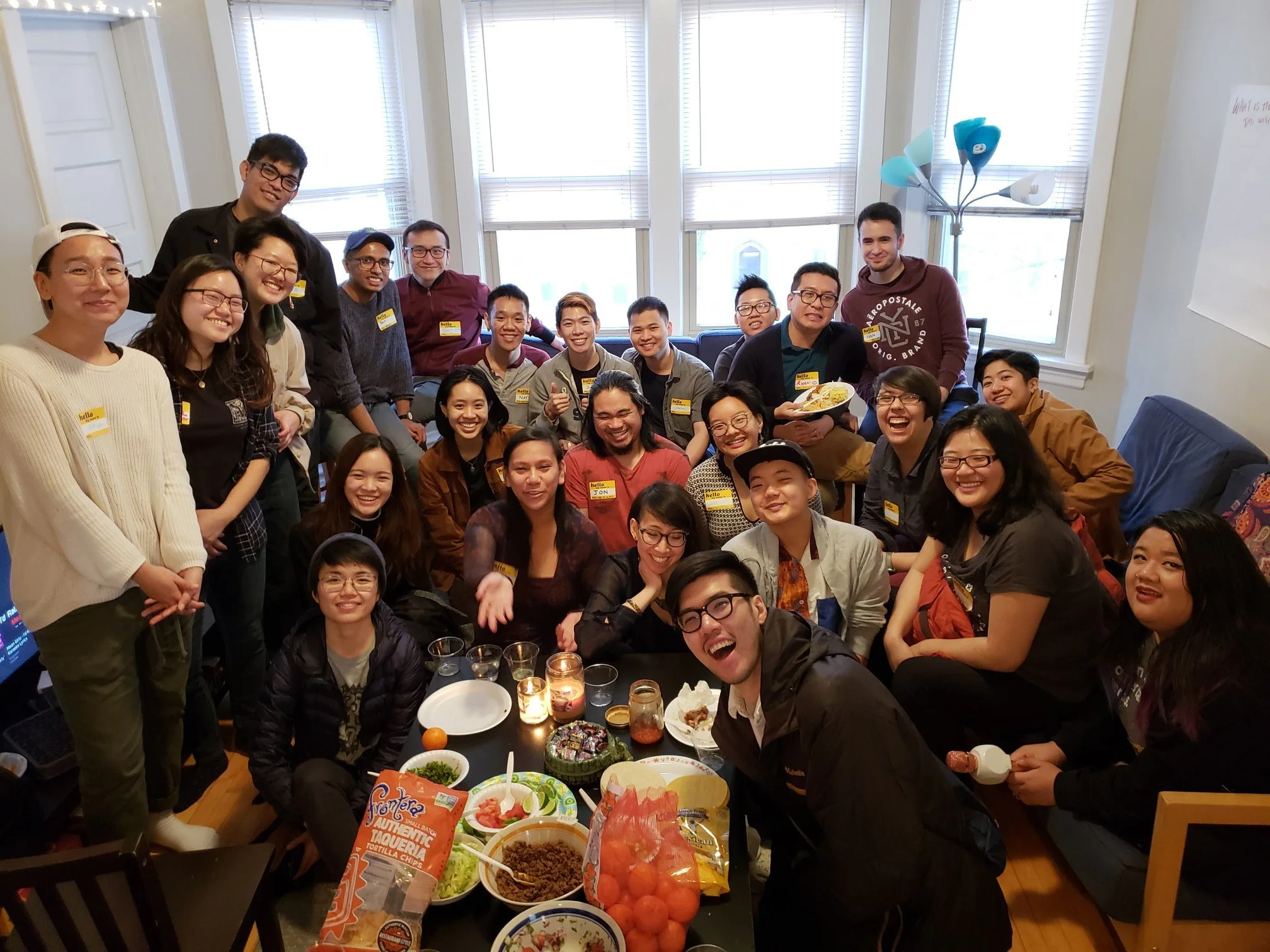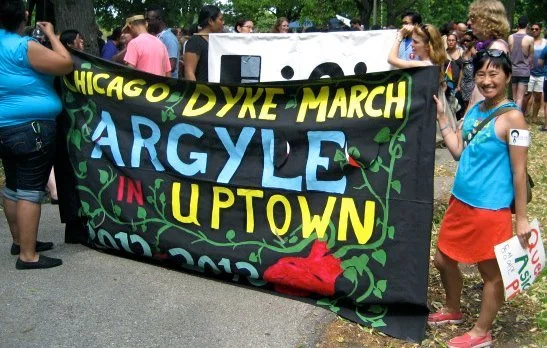Invisible to Invincible
Invisible to Invincible
Site #4 Description…
I2I builds community and stages interventions in both Asian American and LGBTQIA+ organizing spaces.
LGBTQ+ people who are racialized are often doubly alienated: they face xenophobia and racism within white-dominated LGBTQ+ communities, and homo/queer/transphobia within their ethnic communities. Moreover, those who are assigned female at birth, or those who adopt queer and trans femme identities face greater invisibility and vulnerability in these contexts.
Posters made by I2I members for the 2012 Dyke March highlight terms like "Gaysian" and "Asian Dyke." Courtesy: I2I Facebook page.
Recognizing these intersectional complexities, Invisible to Invincible (I2I) was founded in 2005 as an organization of Asian American and Pacific Islander (AAPI) LGBTQ+ people. It often hosted events and meetings at the headquarters of Asian Americans Advancing Justice at the Bridgeview Bank building.
The Bridgeview Bank building(in the 1970s on the right and in 2016 on the left) was a major Uptown landmark of the Roaring Twenties, and the lower floors of the building, used by various banks across the years, still retain luxurious art deco interiors. From the 1980s onward, office spaces in the building were leased out to various social welfare agencies catering to migrants and refugees, such as Asian Americans Advancing Justice, RefugeeOne, Asian Human Services, and Illinois Action for Children. In 2019, the building was taken over by Cedar Street developers and the office tenants evicted. Organizations like I2I, as a result, lost a long-standing community space. (Image Credit: Chet Jakus, Eric Rogers)
I2I’s most regular events are community dinners in the restaurants of Argyle Street, and potlucks held at members’ homes. Such events often also involve the parents of LGBTQ+ Asian Americans, helping build support involving family and community, particularly important for those who are marginalized based on their ethnicity.
A photo collage of I2I members having dinner at Argyle. Courtesy: JJ Uenten.
Group photos from a restaurant dinner in 2012 (left) and a potluck in 2018 (right) featuring attendees posing, smiling, around a table of food. Courtesy: I2I Facebook page.
I2I played a major role in holding the Chicago Dyke March on Argyle Street in both 2012 and 2013. The Dyke March began to be conducted as a celebration of lesbian/dyke identity (the latter signifying more working-class affinities) and resistance in Chicago in the late 1990s, but was held, in its initial years, in neighborhoods like Lakeview and Andersonville, which are hubs of predominantly white and well-do-do lesbian and gay communities. As part of its renewed mission to move the March throughout Chicago in order to promote discussions around race and visibility across dyke/lesbian, queer and transgender communities, the Dyke March organizing collective began to conduct marches in neighborhoods of racialized ethnic communities such as Pilsen and the South Shore. I2I, led by then-Chairperson Liz Anh Thomson, was at the forefront of pushing for Argyle as a March site. This was an important moment of visibility for AAPI LGBTQ+ communities, a joint recognition of both LGBTQ+ identity and the specific experience of being AAPI.
A 2012 poster of the Dyke March and the planned route around Argyle street. Courtesy: JJ Uenten.
The 2012 Dyke March, with frontline marchers holding up a large sign saying "Chicago Dyke March: Argyle in Uptown" on a black background with colorful yellow, blue and red lettering, surrounded by green vines.
As part of a renewed investment in centering race and ethnicity, the Dyke March also conducts events at the chosen site of the march to build rapport with the community in the weeks before the March. “Dinner with Dyke March” at Argyle Street was one such initiative, where the Dyke March collective would organize dinners at local restaurants to both support local businesses, and to create mutual relationships. Owners were given flyers of the upcoming March in both English and Vietnamese. Community Forums were also held in Uptown spaces including the Bridgeview Bank Building. In 2018, I2I joined the amicus brief (a sort of institutional testimony) against President Donald Trump's "Muslim ban," arguing that LGBTQ+ individuals facing persecution in these countries will be particularly affected.
In 2018, I2I joined the amicus brief (a sort of institutional testimony) against President Donald Trump's "Muslim ban," arguing that LGBTQ+ individuals facing persecution in these countries will be particularly affected. I2I was also involved with setting up the Queer Asian American Archive at the University of Illinois Special Collections, which houses much of I2I’s records. I2I’s ongoing efforts, therefore, mark the dual aim of making visible AAPI identity in LGBTQ+ organizing, and LGBTQ+ identity in AAPI community spaces.
Note of thanks: We thank I2I members Liz Anh Thomson, JJ Uenten, and Liz Haas for their controbuting material for this post.
Copyright ©2018 Dis/Placements Project